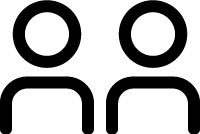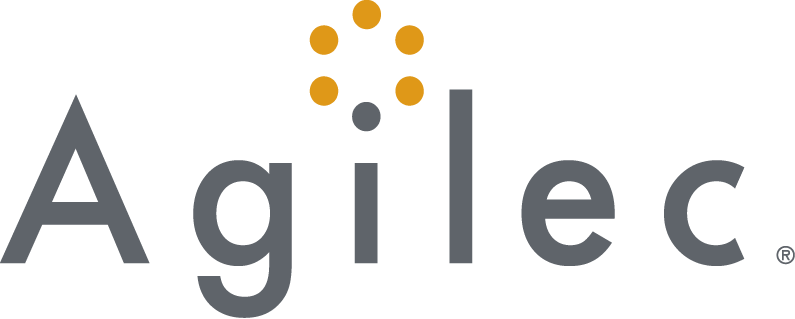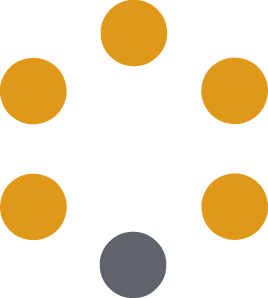Vocational Rehabilitation, Functional, and Specialized Programs and Services
We’ve spent more than 35 years streamlining our services to bring you efficiently coordinated assessments and services in a timely manner.
We work with:
Insurers | Rehabilitation Companies | Lawyers | Employers | Individuals
Whether it’s providing vocational or functional assessments, setting up work-hardening programs, providing job search training and support, or developing a customized suite of return-to-work services, we can help with timely, cost-effective supports tailored to meet your unique needs.
Initial Assessment
The goal of an Initial Assessment is to determine an individual’s current medical and/or vocational status and potential for rehabilitation and develop an individual rehabilitation plan with focus on return to work where appropriate. The initial interview is generally conducted in the individual’s home; however, it may be conducted at an Agilec local office or alternative space; or conducted virtually (as approved or directed by the referral source).
Depending on individual needs and employment status, additional contacts and interviews may be warranted with their physician, employer, and/or other treatment providers or community supports being accessed. The number and/or applicable contacts to be made is determined by the Referring Agent.
Case Management / Return-to-Work Coordination
Case Management / Return to Work Coordination services focus on coordinating medical and vocational activities in preparation for return-to-work. This may include contacting treating professionals for feedback and setting up medical-vocational assessments and treatment. It may also involve contacting employers and assisting with return-to-work planning. Generally, this is the next step after an Initial Assessment and involves implementing the recommendations made in the Initial Assessment report, with the approval of the referral source. In some cases, referrals may be made for case management/return to work coordination without an Initial Assessment. Such referrals would be discussed on a case-by-case basis with our Intake Coordinator.
Transferable Skills Analysis (TSA) / Transferable Skill Profile / Survey
The TSA considers an individual’s education, training, and employment experience, as well as precautions and target wage, as a means of determining suitable vocational options that are within the individual’s functional capacities. The TSA is an objective analysis that follows a methodology using the National Occupational Classification (NOC) System. Agilec also uses a computerized system, QuickNOCPro, to assist with the analysis. TSAs are completed by Vocational Rehabilitation Consultants who have the credentials, experience, and expertise to conduct an assessment of this nature.
Labour Market Analysis (LMA)
The LMA includes research and analysis of regional wage data based on several sources including Service Canada Job Bank labour market information and the Labour Force Survey for the region and the province. Research of the local labour market to identify current job leads and openings in a specific job target area; includes employer contacts to verify wages, functional demands, and training requirements, and availability in a specific geographic area. A report with all findings and resources is provided.
Vocational Evaluation Options
The purpose of a vocational evaluation is to evaluate vocational skills and abilities; assess transferable skills; and identify occupations for which an evaluee would be suited based on his or her aptitude and/or cognitive profile, workplace experiences, education and training, and functional abilities. More specific requests can also be accommodated, such as identifying potential vocational goals for the purpose of career exploration or health re-assignment.
There are different levels of a vocational evaluation, each incorporating a series of standardized tests and inventories used to assess employment aptitudes, academic achievement, work history factors, transferable skills, interests, and temperaments. A thorough report with results, analysis, and recommendations is provided. Suitable occupations presented will take into account the level of testing that has been done.
We offer three levels of vocational evaluation:
- Vocational Assessment
- Psycho-Vocational Assessment
- Neuro-Psycho-Vocational Assessment
Psycho-Educational Assessment
This assessment is designed to confirm the presence of a specific learning disability (and provide a DSM-V diagnosis) and assess the nature and severity of the learning disability, including identifying all academic domains and sub-skills that are impaired, and the degree of severity of each.
This assessment evaluates and confirms if an individual has a specific learning disability through an initial interview and standardized testing process. If a learning disability is identified, the nature and severity of the learning disability will be confirmed, specifying the academic domains and sub-skills impaired. This assessment is intended to identify realistic and practical recommendations that can be implemented to facilitate successful learning and performance, including studies at a post-secondary level.
Unpaid Work Placement / Work Hardening / Job Trial
Agilec Vocational Specialists secure an appropriate employer-based placement where the individual can confirm suitability of the job goal, identify training needs, and/or address disability related barriers. During the initial four weeks of the program, placement preparation activities occur including updating a resume, preparing for placement interviews, identifying/contacting potential employers, and securing a placement. A four-, six-, or eight-week placement can be established. Evaluations are completed by both the employer and individual to verify skills, work tolerances, and work behaviours.
Job Search Training Program
The Job Search Training Program (JSTP) includes one-on-one job search skill development sessions with the Vocational Specialist, Agilec’s 105-page Job Search and Transition Guide, a professional resume and cover letter, and as value-added options, access to several job search and personal improvement documents, links to essential services, and e-learning opportunities through Agilec’s online Resource and Information Centre.
Homework assignments are given and tracked on a Job Search Action Plan. The individual will complete a ‘Pre’ and ‘Post’ program checklist to identify and measure areas of skill, need, and knowledge development. In person training and instruction combined with e-learning and resources are customized to ensure individuals receive the most necessary skills.
Supported Job Search / Job Development
Our Supported Job Search program provides customized coaching with an individual to action job search and maximize the outcome for appropriate employment. The program includes weekly action planning, job search review, refining of job search resources, and identification of job leads. The focus is on active job search rather than job search training. The individual will be supported to direct their own job search efforts, while identifying all possible resources and techniques for a successful outcome.
Job Coaching
Skilled Job Coaches provide on-site training/support with an employee to develop independent employability skills and promote job retention. The Job Coach will meet regularly with the employee/employer to address concerns and make recommendations at the worksite to ensure a smooth transition in the employee’s return to work plan.
We offer three types of job coaching:
- Functional Job Coaching
- Cognitive Job Coaching
- Supportive Job Coaching
Cognitive / Functional Abilities Evaluation (C/FAE)
Cognitive/Functional Abilities Evaluations (C/FAE) are a detailed assessment of an individual’s physical and behavioural functioning to determine ability to meet target job demands. Results outline the individual’s physical strength, mobility, cognitive strengths, and limitations and productive work tolerances. Upon completion of the assessment, customized recommendations to support employee success are provided.
Job Site Analysis (JSA) / Job Demands Analysis (JDA)
Job Site / Demands Analysis (JSA / JDA) is a detailed assessment of the physical, cognitive, behavioural (or psychosocial), and environmental requirements of a job(s). It evaluates the job, not the individual performing the job.
Ergonomic Assessment
An Ergonomic Assessment will identify ergonomic barriers in the individual’s work environment that may exacerbate symptoms and make recommendations on how to overcome those barriers using education and assistive devices.
Progressive Goal Attainment Program (PGAP™)
PGAP™ is a 10-week activity mobilization program developed by the University Centre for Research on Pain and Disability to assist individuals with a variety of health conditions return to active and productive lives. PGAP™ is shown to be effective with individuals experiencing a high level of disability associated with a pain related condition, chronic health, or mental health condition and is most effective as an early intervention tool. Referral is appropriate when the individual’s symptoms have stabilized or begun to plateau but remains occupationally disabled (usually after the first 6 weeks).
Occupational Therapy Assessment / Activation
An In-Home Occupational Therapy Assessment/OT Activation will identify pre-injury activities of daily living, including personal care, housekeeping, home maintenance, caregiving, transportation, and community management. It also evaluates the individual’s level of safety. This assessment allows an Occupational Therapist (OT) to evaluate the individual’s ability to meet functional requirements and make recommendations related to safety concerns, home layout modifications, assistive devices, or external assistance, to assist the individual to maximize their current function.
Psychotherapy
Psychotherapy is primarily a talk-based therapy and is intended to help people improve and maintain their mental health and well-being. Psychotherapy occurs when the Registered Psychotherapist (RP) and client enter into a psychotherapeutic relationship where both work together to bring about positive change in the client’s thinking, feeling, behaviour, and social functioning. Individuals usually seek psychotherapy when they have thoughts, feelings, moods, and behaviours that are adversely affecting their day-to-day lives, relationships, and the ability to enjoy life. It can be used to treat a variety of conditions, including depression, anxiety, stress, phobias, behavioural or relationship problems, and psychosomatic disorders. Psychotherapy incorporates the use of tools and strategies to prepare an individual to respond to challenging situations with healthy coping skills. It may involve Cognitive Behavioural Therapy (CBT) which can help individuals adapt and change their mindset and behaviours by reassessing distorted thought patterns. It promotes constructive and adaptive ways of coping and helps manage troubling symptoms so a person can realize improved function, well-being, and healing. Psychotherapy/mental health support can also lead to increased work performance, productivity, and job retention.
Disability Management
We provide various aspects of disability management tailored to meet your needs.
Working together, we can design and implement disability management services, focusing on timelines and promoting best practices.
For additional service and pricing details
To discuss your needs and how we can support you, please contact us:




Let's Stay in Touch
Join our mailing list and receive the latest communication from us.

